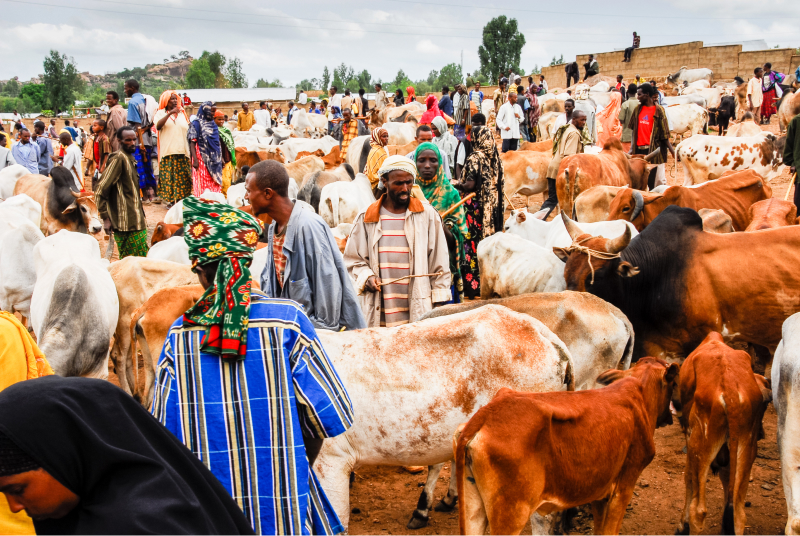The air was filled with optimism as the Abuja chamber of commerce and industry (ACCI) rolled out its vision for Nigeria’s livestock sector before an assembly of reporters.
According to Agabaidu Jideani, the director-general, the livestock industry could contribute up to 5% of the GDP by 2030, raising farmers’ incomes by 40% and opening access to billion-dollar halal markets in the Middle East and Europe.
The national Livestock Development Summit, scheduled later for December, is expected to foster dialogue that would shape the future of the sector, Jideani added.
Reforms are already in motion. Across rural communities, digital platforms are helping to link small-scale farmers directly with buyers, without the encroachment of middlemen. What this means for farmers is that they can set fair prices, negotiate transparently, and watch their earnings stretch further.
The benefits are more than just commercial. With the introduction of technology has come a renewed sense of control. Assured about reaping the fruits of their labour, farmers can now invest in better feed, improve their breeding stock, and employ more efficient practices.
In villages ravaged by herder-farmer conflicts, a gradual change in tone is palpable. Alternative dispute resolution frameworks are taking root, helping to address grievances through non-violent methods. Jideani noted that these measures have the potential to slash conflicts by a quarter within a couple of years.
Along with stability in production, this ensures predictable harvests and the possibility of growth. At the same time, the government’s school feeding initiative is tying nutrition to the success of the livestock sector.
The environmental side also makes for a compelling case. The advent of regenerative grazing is reviving dry, depleted soil, capturing carbon and conserving water.
Women and young people who make up the majority of Nigeria’s agricultural labour force are being trained to participate. With precision farming tools, vaccines to reduce livestock disease losses and cold chain logistics reducing post-harvest waste from 40% to less than 10%, the sector is inching towards a greener and sustainable future.
The December summit will also include exhibitions and grants worth up to N50 million, according to Jideani. There would be policy debates, technical workshops, and agreements that could unlock as much as N8 billion in investments.
This grand vision for Nigeria’s livestock sector promises much more than economic incentives. It points at the remarkable intersection between innovation and national cooperation
The Abuja Chamber of Commerce and Industry (ACCI) unveiled transformative plans for Nigeria's livestock sector, projecting a potential 5% GDP contribution by 2030. These reforms aim to increase farmers' incomes by 40% and open access to lucrative halal markets globally. Scheduled for December, the National Livestock Development Summit will foster dialogue to guide these developments.
Significant changes are underway, including digital platforms that connect farmers directly with buyers, empowering them economically and socially. Alternative dispute resolution frameworks are reducing herder-farmer conflicts, while regenerative grazing practices enhance environmental sustainability by reviving soil and conserving resources. Moreover, women and youth in agriculture are being equipped with precision tools to reduce losses.
The government's school feeding initiative ties nutrition with livestock sector success, and innovative farming methods promise a sustainable future. December's summit will feature exhibitions, grants, policy debates, and technical workshops, potentially unlocking N8 billion in investments, moving the sector towards both economic growth and national cooperation.






